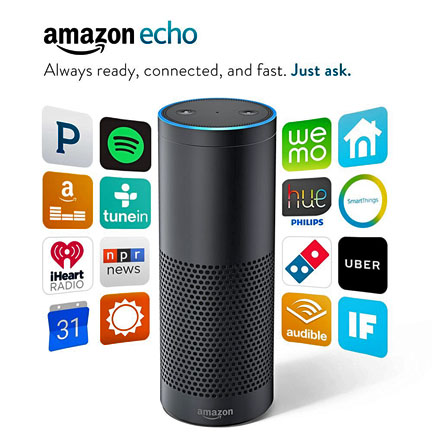By Jim Harrison
Are you tired of being followed around by Google? The impact of our newfound attraction to artificial intelligence (AI) may be profound, and it should give all EEs pause to consider the consequences.
If I shop someplace on the web just one time for a new dishwasher, every time I open a new page on the web for the next month, there will be five or six shiny new dishwashers in ads in the side bar. Someone is watching me, and her name, I think, is Google. She’s really smart and getting smarter all the time. She has connections.
AI was formally founded in 1956 at a conference at Dartmouth College, where the term was coined. MIT cognitive scientist Marvin Minsky and others who attended the conference were extremely optimistic about AI’s future. “Within a generation … the problem of creating ‘artificial intelligence’ will substantially be solved,” Minsky has been quoted as saying.
But progress was very slow and, after a while, government funding dwindled. It was revived again in the early ‘80s. I recall that I was living a few blocks away from the Stanford campus at the time, and AI was all the talk. Then AI went quiet again until the mid-’90s, and in 1997, IBM’s Deep Blue became the first computer to beat the chess champion Kasparov.
Now IBM’s and everyone else’s clouds are showing up everywhere. And we have deep learning.
Amazon’s new $180 Echo digital assistant plays all of your music, knows all of your phone numbers, answers questions, reads audiobooks and the news, reports traffic and weather, controls the TV, lights, and temperature, and orders paper towels when you run out.

Amazon Echo.
The more you use Echo, the more it adapts to your speech patterns, vocabulary, and personal preferences. And because Echo is always connected, updates are delivered automatically. In the last couple of months, they’ve added local search from Yelp, movie show times, Samsung SmartThings support, Google Calendar, Audible audiobooks, text-to-speech for Kindle eBooks, and over 100 new skills from third-party developers.
Alexa, the software brain behind Echo, is in the cloud, so it’s always getting smarter from all of that information. Alexa Voice Service is Amazon’s intelligent cloud service that allows Echo to be voice-enabled. You can add it to your product — any connected product with a microphone and speaker.
Of course, Cortana is your friend in Windows 10. And Google just brought out a new phone, the Pixel, which is intended to show off all of Google’s AI smarts, including the talking assistant creatively named the Google Assistant.
The part to pay attention to here is that these devices or features are automatically updated. They may (no, will) have features you don’t even know about.
Google handles more than 3.5 billion searches every day. Google is using AI to make search better, and Google is using search to make its AI better. Every time you type a query and then click on a search-generated link, you are training the Google AI. When you type “cute cat” into the search bar and then click on the cutest cat you see, you are teaching the AI what a cute cat looks like.
Of course, AI is great with pictures and can easily recognize you in a crowd from one of the millions of cameras around — many of which send their data to the cloud. I expect that soon, when you buy a magazine at the airport with your smart card, by the time you get on your plane and open your laptop, you’ll have an ad for magazines about that subject area.
We’ve all heard the cautions about AI for years. But now, it’s moving at a blistering pace. And I guarantee you that the general public will take all it can get and not think twice about it. It’s up to engineers and (God forbid) Congress to keep this in check.
Or is the cat already out of the bag?
You may want to reference this recent article on TensorFlow: http://electronicproducts-com-develop.go-vip.net/Software/Development_Tools_and_Software/Every_electronics_engineer_should_know_about_TensorFlow.aspx
Advertisement





